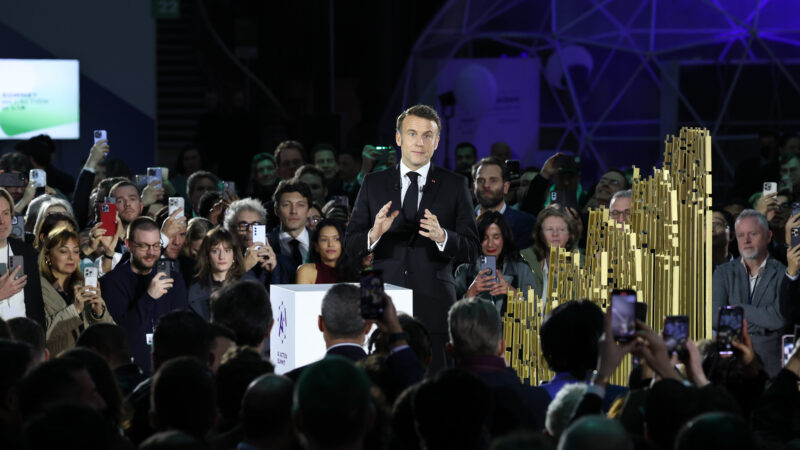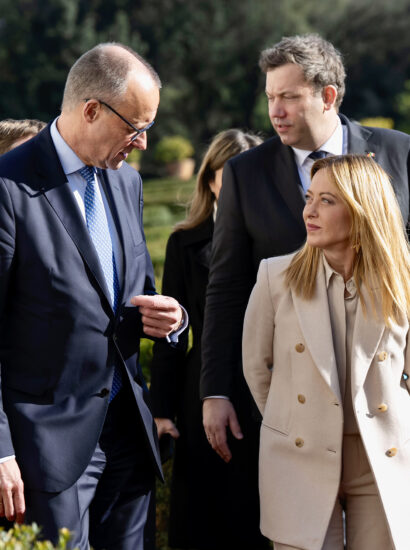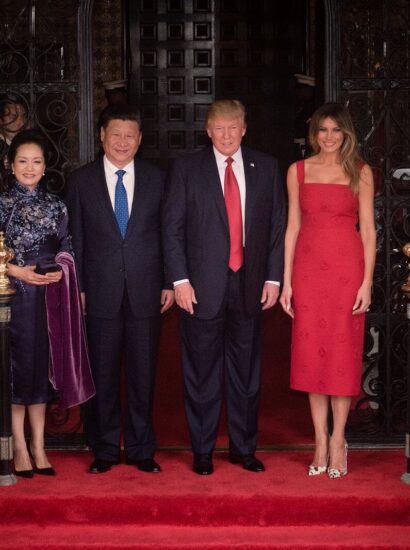US Vice President JD Vance called on European countries to embrace “the new frontier of AI” in his speech on Tuesday at the Paris AI Summit. He also criticized the EU’s strict technology regulation, which he says threatens innovation and hampers the global competitive advantage of US technology companies. Meanwhile, the co-host of the summit, Emmanuel Macron, framed his country and the EU as increasingly relevant, industry-friendly actors in the global AI tech race.
US to Shape Global AI Governance
US Vice President JD Vance urged European nations at the Artificial Intelligence Action Summit in Paris to be “the new frontier of AI with optimism and not trepidation.”
The event, which was co-hosted by French President Emmanuel Macron and Indian Prime Minister Narendra Modi, promoted ethics and accessibility in AI and pushed for European dominance over the technology.
“We want to start the AI revolution with the spirit of openness and collaboration, but we need international regulatory regimes that foster creation to create that kind of trust,” pointed out JD Vance. The US Vice President also urged AI legislation that does “not strangle” the emerging sector, echoing complaints made by American businesses against European attempts to control Big Tech.
Ursula von der Leyen, president of the European Commission, was among the attendees when Vance sharply criticized the Digital Markets Act and the Digital Services Act of Europe, calling them “onerous international rules” that have hindered innovation and put needless obstacles in the way of American companies.
“American AI standard tech is gold standard worldwide,” Vance praised the country’s “open regulatory environment” and pro-innovation stance. “America is the leader in AI and this administration intends to keep it that way,” concluded Vance.
The AI Act and EU Regulatory Philosophy
The European Union is heading in the opposite way from the United States, which supports market self-regulation. The EU AI Act, which prohibits specific technologies and places stringent restrictions on high-risk AI systems, is the first comprehensive regulation of artificial intelligence.
French President Emmanuel Macron defended the necessity for additional regulation, stating: “We need these rules for AI to move forward.”
Macron added that France is the best location for a sector that requires massive amounts of power because it is the continent’s largest producer of nuclear power and has some of the lowest carbon emissions for electricity generation in the coming years. According to him, France intends to invest €109 billion on AI.
Modi called AI the “dawn of the AI age,” highlighting its impact on economies, security, and society. He emphasised AI’s rapid development and deployment, urging collective global efforts to establish governance frameworks that uphold shared values, address risks, and build trust. Modi also showcased India’s success in creating a low-cost digital public infrastructure for 1.4 billion people and its position as the world’s largest AI talent hub.
Ursula von der Leyen, president of the European Commission, whose office wrote the GPDR and Digital Services Act, also stated that the EU intended to lower administrative barriers because Europe runs the risk of lagging behind the US and China in the emerging sector.
In order to do this, the EU has announced the InvestAI program, which would invest €200 billion in data centers and AI development.
According to European leaders, protecting AI won’t hinder innovation but rather, in the long run, boost confidence in the technology. Ursula von der Leyen, president of the European Commission, retorted that the regulation’s goal is to safeguard democratic institutions and consumers, not to impose restrictions on US tech firms.
The UK government claimed in a brief statement that national security and “global governance” considerations prevented it from adding its name to it. According to a statement from the government spokesperson, it “agreed with much of the leader’s declaration” but thought it was deficient in several areas. However, not long ago, the UK has been a champion of the idea of AI safety. In November 2023, then-prime minister Rishi Sunak hosted the first-ever AI Safety Summit, demonstrating the UK’s prior support for the concept.
China, the Third AI Superpower
China is secretly developing its own AI empire while the US and Europe argue over regulations. Through protectionist policies and state subsidies, the
Chinese government is supporting its own tech giants, including DeepSeek AI, which is already posing a serious threat to the US’ OpenAI.
Last month, there was a steep 17 percent drop in the price of Nvidia shares when DeepSeek made their new AI reasoning model publicly available. Vance made explicit reference to China when he called out nations that he claimed were exploiting AI for propaganda, spying, and military objectives as “hostile regimes” in his lecture. As Chinese Vice Premier Zhang Guoqing, Xi Jinping’s special envoy, watched, he alluded to the “authoritarian regimes” in other sovereign countries that “create propaganda,” employ spyware, and bolster military capabilities.
“I want to remind our international friends that partnering with such regimes, it never pays off in the long term,” Vance stated. The US has unveiled a $500 billion AI development plan to keep its technological advantage over China.
China, meanwhile, is concurrently engaging with both parties. Surprisingly, they signed the Global AI Ethics Declaration at the Paris AI Summit, which calls for the technology’s growth to be transparent and sustainable. This does not imply, however, that Beijing is impeding its own AI research plan in any manner.
What is in the Agreement?
The 60-nation agreement outlines a goal to promote AI accessibility in order to lessen digital disparities. The declaration states that the participants agreed to “make AI sustainable for people and the planet” and to insist that the development of AI be “open, inclusive, transparent, ethical, safe, secure, and trustworthy, taking account international frameworks for all.”
Another objective is “Making AI sustainable for people and the planet.” The accord also mentions that the first-ever meeting addressed AI energy use, which experts have warned could eventually surpass that of tiny nations.







